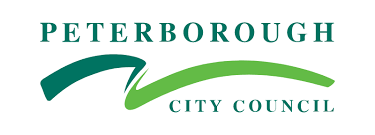Deescalation Training to Keep Everyone Safe in Your Workplace
Does your team meet disagreement, intimidation or aggression?
Hi, I'm Gerard - thanks for visiting our website today. Here you will find information about how to bring deescalation training to your team and keep everyone safer in your workplace. I look forward to working with you!

Help is available - your team can become confident in the face of conflict!
Interpersonal conflict is inevitable in any relationship, whether it is in the workplace, at home or with friends. Conflicts arise when two or more individuals have differences in opinions, goals, or values. While not all conflicts require immediate deescalation, it is essential to know when to take action to prevent the situation from escalating further. The following are situations where interpersonal conflict needs deescalation.
When conflict becomes emotional
When the conflict becomes emotional, it is essential to deescalate the situation. Emotions can run high during a conflict, and when not managed, it can lead to verbal or even physical attacks. It is crucial to take a step back when emotions are high to prevent the situation from escalating.
When conflict hinders productivity
Interpersonal conflict can hinder productivity in the workplace. When employees are distracted by a conflict, their focus shifts from work to the conflict. This can lead to missed deadlines, errors, and even project failure.
When conflict affects relationships
Interpersonal conflicts can damage relationships. When conflicts are left unresolved, they can create a rift between individuals. This can lead to a breakdown in communication, mistrust, and even the end of the relationship.
Deescalation training is crucial for individuals who frequently encounter conflicts in their personal and professional lives. The training provides individuals with the necessary skills to recognize when a situation is escalating and how to take action to prevent it. These skills can help individuals manage conflicts without resorting to verbal or physical aggression, leading to more positive outcomes and improved relationships. Additionally, deescalation training can improve workplace productivity and create a safer and more positive environment for everyone involved.
Develop Confidence in Conflict...
- Deescalation training can teach employees how to identify the early signs of conflict, allowing them to intervene before the situation becomes unmanageable.
- Deescalation training can teach employees how to communicate effectively during conflicts, leading to more positive outcomes and improved relationships.
- Deescalation training can help employees manage their emotions during conflicts, preventing them from taking things personally and reacting impulsively.
- Deescalation training can teach employees how to listen actively and empathetically, helping them understand the other person's perspective and find common ground.
- Deescalation training can help employees build trust and respect within the workplace, leading to a more positive and cooperative work environment.
- Deescalation training can decrease the number of workplace conflicts, leading to increased productivity and decreased absenteeism.
- Deescalation training can prevent conflicts from escalating into harassment or violence, creating a safer work environment for everyone involved.
- Deescalation training can help managers handle conflicts between employees more effectively, preventing conflicts from affecting the entire team.
- Deescalation training can help employees feel more confident and empowered when dealing with difficult situations, leading to higher job satisfaction and retention.
We know that training is time consuming and not always effective, so we do it differently!
We use evidence-based and research-informed deescalation training methods which are based on YOUR scenarios and the challenges YOUR team are experiencing. This makes it 'sticky' and improves the transfer of learning to your meetings, visits and encounters with others.
Deescalation training developed for 25 years and used by thousands of professionals!
Are the effects of conflict spilling over into how your team performs? Is conflict holding your staff back? Are there missed opportunities to stop conflicts from escalating? Do you need to feel sure that your staff are protected from aggression?
Our clients become more confident that their teams know what to do in order to prevent conflict from escalating and how to show people respect in difficult encounters, even when that person may be vulnerable due to cognitive or other difficulties.
We offer you peace of mind that your staff are protected from the toxic effects of conflict and that every person who interacts with your organisation is treated with dignity and is shown respect.
We know that staff encounter angry, upset and distressed people in a wide number of workplaces. Perhaps your team faces abuse, intimidation and threats and they look to you for guidance in how to manage these situations professionally. You want to know that they, and the people they interact with, are safe.
We have helped many clients to ensure that staff and everyone who interacts with their organisation is kept safe from these risks. Take a look at our testimonials to see the feedback we get from our clients.
Different Types of Deescalation
Pro-active, by being sensitive to the triggers for conflict which we carry ourselves, and which others may be sensitive to.
Counter-Active, by applying specific approaches to situations which are already heated, to find a path towards resolution.
Retro-Active, when the person is already deep in crisis, to recover the person and create safety from chaos.
Deescalating Conflict is Essential Professional Development
Listening and Empathising are examples of great Deescalation Strategies...
"I never thought conflict management would be my calling. It wasn't until I started working in a high-stress job that I realized the importance of being able to manage conflict effectively.
Over time, I started to develop my conflict management skills. I learned how to actively listen to my customers, empathize with their frustrations, and find solutions that satisfied both parties.
After completing Dynamis deescalation training, I felt more confident in my abilities to manage conflicts. My job became less stressful, and I even started to enjoy it more. I started to notice the positive impact that my conflict management skills were having on my customers and colleagues.
I've seen the positive impact that deescalation training can have on individuals and organizations. It improves workplace productivity, creates a safer and more positive environment, and leads to improved relationships. And I'm proud to be a part of that."
-- Gerard O'Dea
Director of Training
Team Dynamis Ltd.
Your team can access our training in Different Formats
Companies can access deescalation training in a variety of formats, including in-person, online, or blended formats.
In-person training can be conducted at the company's location or at an off-site training facility. This format allows for personalized attention and hands-on practice, creating a more engaging and interactive learning experience.
Online (and Remote) training is a convenient and cost-effective option that allows employees to complete the training at their own pace and on their own schedule.
Blended formats combine in-person and online training, offering the best of both worlds. This format allows employees to complete the online portion of the training before attending the in-person session, maximizing the effectiveness of the training.
Companies can choose the format that best suits their needs and budget, ensuring that all employees receive the necessary training to manage conflicts effectively.
Dynamis Deescalation Training
Our clients in education, healthcare, retail, hospitality and citizen services have all benefited from effective and relevant training for their teams which deliver the following key skills to their staff:
- 1How not to escalate everyday encounters: wouldn't it be great if your team were more aware of pushing people's hot-buttons?
- 2How to deal with situations that are already "on-fire" wouldn't it be great if you had more people on your team who you could trust to put people-fires out?
- 3Recognise and support people in crisis or people who are potentially violent! wouldn't you sleep better knowing that your team can recognise different conflict types and take appropriate action to resolve them?

What People Are Saying About our Deescalation Training

“Delivered in an interesting and empathetic way”
"The course was very helpful, informative and the tutor delivered it in an interesting and empathetic way. It exceeded my expectations and I felt that the trainer had an excellent level of knowledge and understanding of the topic. I would recommend it to colleagues 10/10!"
June Dewsbury
- Hospital Administrator, Spire Healthcare

“tailored to our circumstances..."
“The trainer was very good at engaging with attendees and knew how to get everyone involved. Very pleasant day, the course was fun and rewarding very helpful - The training was tailored to our circumstances and delivered in a friendly professional way that encouraged participation "
Samantha Allen
- Senior Customer Service Manager

“far superior"
“The level of training I had from Dynamis was far superior to any training I had in the past 32 years I have been in this line of work,this will enhance how I perform my job going forward"
Steve Collins
- Senior Manager
Serco @ Great Western Hospital, Swindon
Talk to our training advisor now...
Our Client Manager is an experienced training professional who can discuss the options for training your team, including recommendations for formats and content which will meet your specific needs.

A Few More Testimonials to Prove it Works for Real People

“will be able to put it in to practice"
“Much, much better than any previous course of this nature I have attended. Found it very useful, learned lots from the course and will be able to put it in to practice if ever needed "
John Woodlands
- Pollution Control Officer, Peterborough City Council

“in-depth and relevant ..."
“Very in-depth and relevant to situations but provided clear elements on psychology and human nature to interpret - this training fulfilled my expectations and the company provided an excellent trainer with the right level of knowledge and competence."
Samantha Allen
- Operations Manager, Crisis Retail
Gerard O'Dea
Deescalation Trainer
Deescalation training with Dynamis
Dynamis was established in 2006 with one owner-trainer and a focus on personal safety training. Since then our training team has grown and we now deliver training in all aspects of conflict management, personal safety and protective physical interventions across Health, Education, Retail, Leisure, Facilities and for Community-Based Teams involved in Social Work, all over the world.
We bring you confidence in conflict.
Why would you NOT invest in Deescalation Training?
When it comes to investing in training, objections are common. People may be hesitant to spend money on training, unsure of the value it will bring or if it will be worth the investment. However, deescalation training can be a valuable asset for personal and professional growth. Let's take a look at some of the most common objections people consider when buying deescalation training.
"We don't have time for deescalation training!"
Time is one of the most common objections when it comes to training. Leaders may feel that their team is too busy with work or personal responsibilities to commit to training. However, it's important to remember that training can be a valuable investment in time. By investing time in deescalation training, teams can improve their skills, become more efficient, and ultimately save time in the long run. Our training formats (online, remote, blended, incremental) can be tailored to fit into or around any time constraints you have.
"It looks too expensive for us"
Cost is another common objection when it comes to training. Leaders may feel that the cost of training is too high, and they can't afford it. However, it's important to remember that training is an investment in personal and professional growth, and it can pay off in the long run - especially when we consider mental health and wellbeing of your team members, the cost of litigation when things go badly wrong, and even the risk of injury if someone resorts to violence in an encounter with your staff.
"We already know what we need to know."
Some leaders may feel that their team already have the necessary skills and knowledge and don't need training. However, it's important to remember that training can provide new perspectives, best practices, and the latest approaches. We meet a lot of teams who have over-estimated their skill levels when it comes to conflict management!
"We are just not sure if it will be valuable."
Some leaders may be unsure of the value of deescalation training and whether it will be worth the investment. However, it's important to remember that training can provide valuable insights, knowledge, and skills that can improve job performance and personal growth, not to mention fulfilling Health and Safety requirements for keeping staff and others safe in the workplace. Where risks are foreseeable, the cost of negligence ("failure to train") can be very high compared to the investment required in training.
Advantages vs Disadvantages
Imagine two future worlds in which differently trained teams approach conflict...
With Deescalation Training
Without Deescalation Training
Deescalation Training content

100% Satisfaction Guarantee
You are fully protected by our 100% Satisfaction-Guarantee. If your team are not satisfied that we met or exceeded their expectations of the training course, just let us know and we'll send you a prompt refund.

Frequently Asked Questions
Where is training carried out?
What is the investment in training?
How quickly can I book training to happen?
How many people can attend a training course?
Is Dynamis training Accredited?
Is the training suitable for my staff and my context?
We have delivered scenario-driven, safety-focussed deescalation training for:
- NHS teams in clinical settings, acute trusts, community care and GP surgeries
- Private Healthcare teams in Hospital Administration, Portering, Cleaning and Security
- Retail teams working in high-traffic high-street locations which attract anti-social behaviour
- Leisure/Restaurant teams who work in hospitality, dealing with Dine-n-Dash, for example
- Facilities / Construction teams who have varied, complex interactions with stakeholders
- Enforcement teams who have to deliver 'bad news' to people in the community
- Asylum Seeker support and welfare teams who lean heavily on listening and empathy
- Probation support teams who use redirection and persuasion to keep people on track
- Finance teams who encourage compliance with vehicle lease/loan owners
- Electrical Engineering technicians who maintain high levels of customer satisfaction
- School teams who want to foster a great social contract with their pupils' parents
- Colleges who want to foster compliance with the rules, in a positive environment
- Community Safety Wardens who had to address the issues of knife crime in their community
Copyright -
